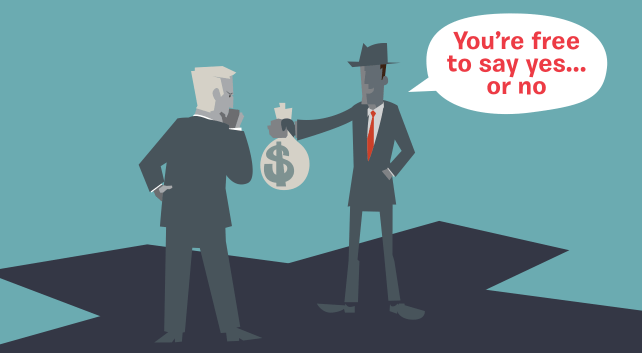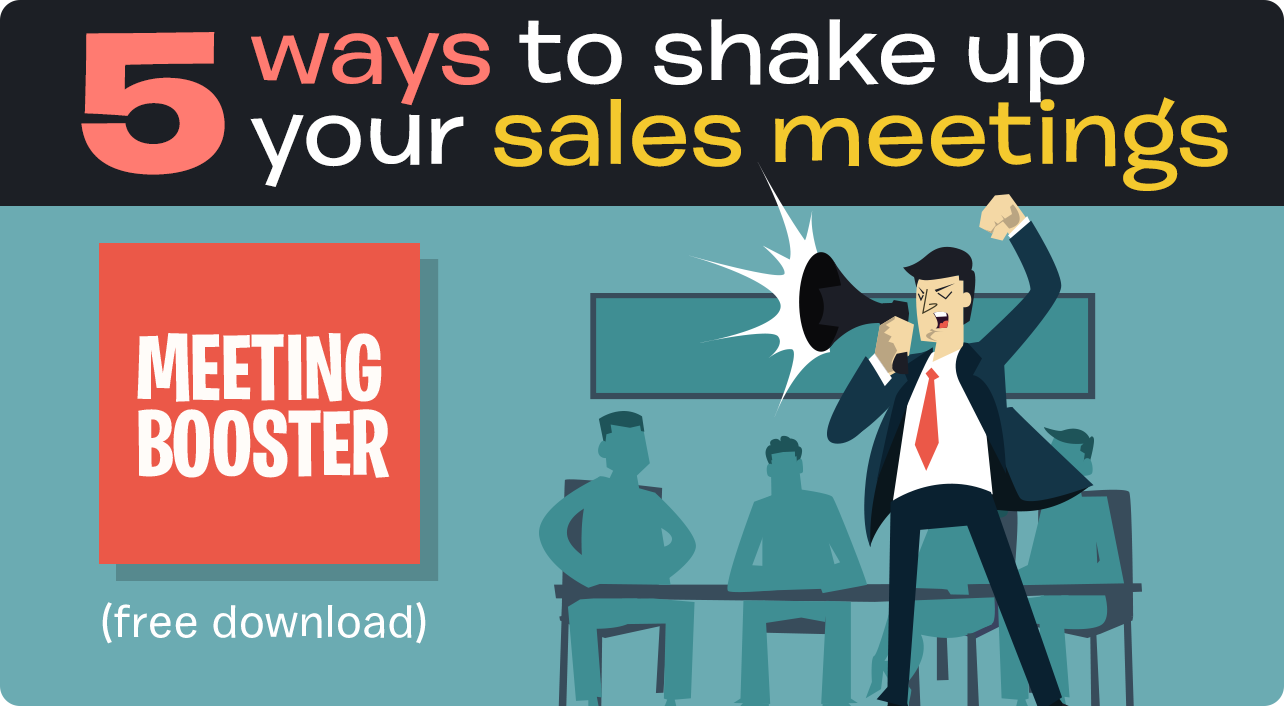- sales
- Blog post
Obviously, prospects are free to buy or not, but it helps to tell them so
What if I told you that a great way to get people to buy from you … is to tell them they don’t have to buy from you?
Huh? Sounds bassackwards. But it’s true.
This counter-intuitive idea comes from research done by two French academics. They recruited four young people — two men and two women in their early 20s — dressed them in clean jeans and T-shirts, and had them stand outside a bus station asking passersby for money for the fare.
The young people would say, “Can you spare me a few coins so I can catch the bus?” And, unsurprisingly, most people said no. A few said yes. But when the kids asked exactly the same question, but added this phrase – “Of course, you’re free to say yes or no” – twice as many people said yes.
There are further behavioral experiments to back up this finding. Other researchers stopped people on the street and asked them to sign a petition or give money to a tsunami relief fund. Still others asked folks in nursing homes to participate in group activities. In every case, when the solicitors added the phrase “But you are free to say yes or no,” lots more people said yes.
It’s the idea, not the words
It doesn’t take much imagination to see how this technique would work in sales. When you’re trying to close a deal, for instance, you’re asking the prospect to take an action you desire — to buy from you. If you ask for the sale, you may get the reaction you’re seeking. But the research indicates that you’re more likely to get agreement if you use the “free to say yes or no” technique. (Same holds for other things you’d like prospects to do, like demo-ing your product or introducing you to their boss.)
And you don’t have to use those exact words, according to the research. It’s the idea behind them that’s important.
You can convey it just as effectively by saying, for example, “Obviously, you are not obliged.” Or you might say, “I understand that we’re not for everyone. It’s up to you to decide.” Or “I only want you do this if it makes sense for you.” Or even, “Feel free to tell me no.”
A feeling of power
Why does this technique work? Clearly, buyers already know that they’re free to say yes or no. But when you use a “free to say yes or no”-type phrase, you remind buyers that they have agency. They have choices. They have power. And when buyers feel powerful, they’re less resistant.
Think about what happens in the opposite case, when buyers feel they’re being manipulated. What do they do? They push back. They dig in their heels. They may do something that runs counter to their interest — like refusing to buy something from you that they need — just to show you who’s in charge.
But when you acknowledge their freedom, you disarm their resistance. You signal that you’re not going to get into a wrestling match with them. You won’t be angry or disappointed. You won’t argue with them.
Result: Buyers are more open to you, for two reasons — you’ve let them feel they’re the boss, and they’re confident they won’t regret opening the door to you later on.
And the best part? Really, you’re not giving up a thing when you tell a buyer he or she is free to accept or refuse. As we noted, they already were before you said so.
Why don’t people do it?
You’d think that if this kind of phrase is so effective, more salespeople would use it in more situations.
The problem is that it’s hard to do. Because salespeople are people too. The idea of surrendering control — especially when it’s your livelihood on the line — can be tough. You want to stay in control. And you don’t want to plant negative ideas in your buyers’ heads.
But the lesson of the research is that we have to trust our buyers — and we can. When we try to control them, we drive them away. When we let them go, oftentimes they will reward us.

Get a demo of all our training features
Connect with an expert for a one-on-one demonstration of how BTS Total Access can help develop your team.


